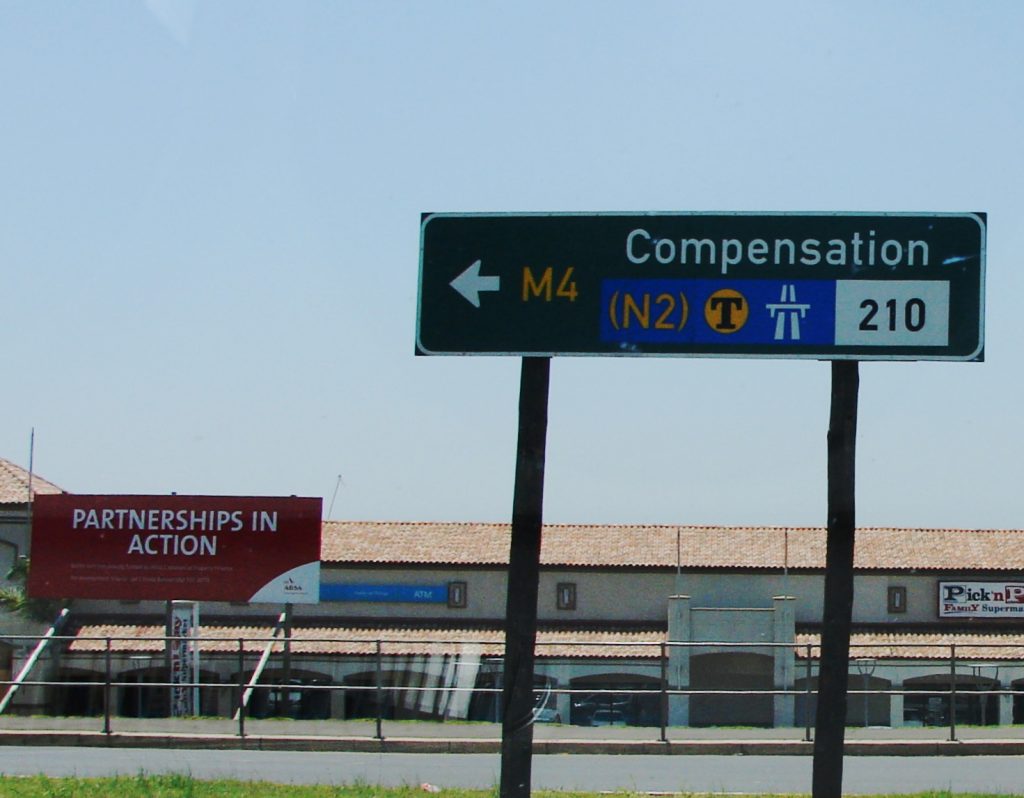 In workers compensation cases, the awarded money benefits can be offset in court to account for other benefits being received by the employee for the same injury like social security disability benefits. If the employer seeks to have the workers compensation benefits offset to account for social security disability they will need to file a “Motion for Recognition of Right to Social Security Offset” pursuant to La. R.S. 23:1225(A). The Louisiana First Circuit Court of Appeal was recently faced not only with a motion to offset due to social security disability but whether or not to include attorneys fees in the pre-offset amount or not. These particular issues arose out of a lawsuit brought by Stephanie Nitcher against Northshore Regional Medical Center (Northshore) for compensation for temporary or permanent total disability benefits, medical treatment and attorney fees.
In workers compensation cases, the awarded money benefits can be offset in court to account for other benefits being received by the employee for the same injury like social security disability benefits. If the employer seeks to have the workers compensation benefits offset to account for social security disability they will need to file a “Motion for Recognition of Right to Social Security Offset” pursuant to La. R.S. 23:1225(A). The Louisiana First Circuit Court of Appeal was recently faced not only with a motion to offset due to social security disability but whether or not to include attorneys fees in the pre-offset amount or not. These particular issues arose out of a lawsuit brought by Stephanie Nitcher against Northshore Regional Medical Center (Northshore) for compensation for temporary or permanent total disability benefits, medical treatment and attorney fees.
On October 30, 2012, Ms. Nitcher was awarded workers compensation benefits including $86,871.84 in past due indemnity, $13,181.13 in interest and $550.47 in appeals costs all from Northshore. In addition, Northshore was ordered to pay Ms. Nitcher permanent total disability benefits in the amount of $329.96 per week from the date of the judgment forward. Ms. Nitcher in addition to the workers compensation benefits being paid by Northshore was receiving social security disability benefits pursuant to 42 U.S.C. § 423. On December 19, 2013, Northshore filed its motion for recognition of the offset of the social security disability benefits, which serves the purpose to allow an employer to offset the amount of money it’s paying out when the employee is essentially receiving payment for the same disabilities from both state and federal entities. The offset sought by Northshore would reduce their weekly payments to Ms. Nitcher by $115.52. Prior to the hearing on Northshore’s motion, Ms. Nitcher filed to have her attorney’s fees taken out of her weekly workers compensation benefits, resulting in $65.81 coming out of the previously awarded $329.96. Northshore’s offset calculation did not deduct the $65.81 prior to calculating the $115.52 offset which resulted in their motion being denied and the judge ordering that Northshore’s offset amount be $49.71 a week lowering the original $329.96 to $279.35.
On appeal Northshore contends that the judge erred in denying the offset amount of $115.52, claiming that pursuant to La. R.S. 23:1225(A) the attorney’s fees did not need to be deducted prior to the offset calculation. The First Circuit Court of Appeal in determining the social security offset first looked to La. R.S. 23:1225(A) which states that the benefits provided for injuries resulting in permanent total disability will be reduced when the person is also receiving benefits under 42U.S.C. Chapter 7 (42 U.S.C. 423) which applies in this case since Ms. Nitcher is receiving benefits both from workers compensation as well as social security disability. From here the appeals court went on to determine how the offset should actually be calculated, the specific issue here being whether or not to calculate pre or post attorney fee deduction. The prior judgment approved the attorney fees deduction from the calculation referring to statutory attorneys fees which do allow for deduction prior to offset calculations, the fees at issue are however not statutory attorneys fees. The attorney’s fees, in this case, are limited by statute but not authorized by statute which would make them statutory attorney fees. The court went further to determine that since there is no Louisiana law that requires an employer to pay attorneys fees in connection with a workers compensation claim, that the only way to do so would be if it were a punitive order. That is however not the case here and since Ms. Nitcher does owe the attorneys fees it was properly deducted from her disability benefits, but Northshore was improperly made responsible for the fees by including the deduction in their offset assessment.
 Louisiana Personal Injury Lawyer Blog
Louisiana Personal Injury Lawyer Blog


 The Louisiana Workers’ Compensation Act aims to protect employees who suffer on-the-job injuries. But in order to benefit from the act, plaintiffs have the burden of proving their claims. This means providing clear and convincing documentation of your injuries and work limitations. In a recent case, the Louisiana Second Circuit Court of Appeal found that the plaintiff failed in meeting this burden of proof.
The Louisiana Workers’ Compensation Act aims to protect employees who suffer on-the-job injuries. But in order to benefit from the act, plaintiffs have the burden of proving their claims. This means providing clear and convincing documentation of your injuries and work limitations. In a recent case, the Louisiana Second Circuit Court of Appeal found that the plaintiff failed in meeting this burden of proof. Appellate courts are reluctant to reverse a trial court’s judgment based on the argument the trial court failed to properly evaluate the evidence. Deference to a lower court is the norm. A recent decision by the Louisiana First Circuit Court of Appeal in DeBlanc v. Albertson’s highlights the principle of judicial deference.
Appellate courts are reluctant to reverse a trial court’s judgment based on the argument the trial court failed to properly evaluate the evidence. Deference to a lower court is the norm. A recent decision by the Louisiana First Circuit Court of Appeal in DeBlanc v. Albertson’s highlights the principle of judicial deference. “An eye for an eye will only make the world blind,” said Mahatma Gandhi. In a recent case, the Ritz-Carlton Hotel Company, LLC claimed that one of its employees filed a lawsuit against it as retaliation for her dismissal from the company. The Louisiana Fifth Circuit Court of Appeal was faced with the question of whether that employee actually suffered a compensable work-related injury or whether her claims were suspect.
“An eye for an eye will only make the world blind,” said Mahatma Gandhi. In a recent case, the Ritz-Carlton Hotel Company, LLC claimed that one of its employees filed a lawsuit against it as retaliation for her dismissal from the company. The Louisiana Fifth Circuit Court of Appeal was faced with the question of whether that employee actually suffered a compensable work-related injury or whether her claims were suspect. Workers’ compensation disputes often boil down to the terms of a written contract where each party asserts their own interpretation of the agreement and lets the court decide. The case below is no different as it pertains to a “third-party beneficiary,” which essentially is a party not expressly contained in the agreement, but is no less a party to the contract.
Workers’ compensation disputes often boil down to the terms of a written contract where each party asserts their own interpretation of the agreement and lets the court decide. The case below is no different as it pertains to a “third-party beneficiary,” which essentially is a party not expressly contained in the agreement, but is no less a party to the contract. In Louisiana, when an employee suffers an on-the-job injury, the employer may be held liable. This can easily end the initial romantic period of the employment, now that the employee’s interests are at odds with the employer’s. The employer considers that it now has to take care of a non-productive employee, hurting the business’s bottom line. On the other hand, the employee argues that she should be compensated for her work-related injuries considering all the labor she put into the company, contributing to its profits. The law takes into account and draws a delicate balance between these varying interests. It goes without saying that it is important for both employees and employers to be aware of their rights under workers’ compensation law. Illustrating this point, the Louisiana Third Circuit Court of Appeal was recently called upon to decide whether a potentially expensive surgical procedure made necessary by a work-related injury should or should not be granted.
In Louisiana, when an employee suffers an on-the-job injury, the employer may be held liable. This can easily end the initial romantic period of the employment, now that the employee’s interests are at odds with the employer’s. The employer considers that it now has to take care of a non-productive employee, hurting the business’s bottom line. On the other hand, the employee argues that she should be compensated for her work-related injuries considering all the labor she put into the company, contributing to its profits. The law takes into account and draws a delicate balance between these varying interests. It goes without saying that it is important for both employees and employers to be aware of their rights under workers’ compensation law. Illustrating this point, the Louisiana Third Circuit Court of Appeal was recently called upon to decide whether a potentially expensive surgical procedure made necessary by a work-related injury should or should not be granted. Accidents occur everywhere including the workplace. Are you entitled to any benefits if injured while on the job? One common benefit of employment is the availability of worker’s compensation when injured on the job. Worker’s compensation is a type of insurance that grants wage replacement and medical benefits to employees injured in the course of employment. This in exchange relinquishes the right to sue the employer for negligence. Does it matter if you have been recently promoted or demoted? Calculating wage replacement benefits can often not be as clear-cut as it may appear. The following case describes the standards in Louisiana for calculating a salaried employee’s average weekly wage (AWW) for workers’ compensation benefits.
Accidents occur everywhere including the workplace. Are you entitled to any benefits if injured while on the job? One common benefit of employment is the availability of worker’s compensation when injured on the job. Worker’s compensation is a type of insurance that grants wage replacement and medical benefits to employees injured in the course of employment. This in exchange relinquishes the right to sue the employer for negligence. Does it matter if you have been recently promoted or demoted? Calculating wage replacement benefits can often not be as clear-cut as it may appear. The following case describes the standards in Louisiana for calculating a salaried employee’s average weekly wage (AWW) for workers’ compensation benefits. Have you ever suffered personal injury from an accident while traveling to or from work? Generally, pursuant to the Louisiana Workers’ Compensation Act employers are not responsible for injuries sustained by employees while traveling to or from work because these injuries are not considered to have occurred within the course of employment. This is known as the “going-and-coming” rule, under which the employment relationship is considered suspended from the time the employee leaves his or her workplace. However, there are certain exceptions to this rule that allow a claimant to recover even though the injury was sustained while traveling to or from work. The following case illustrates one such exception: if the accident occurred on the employer’s premises, the employee may be covered under workers’ compensation laws.
Have you ever suffered personal injury from an accident while traveling to or from work? Generally, pursuant to the Louisiana Workers’ Compensation Act employers are not responsible for injuries sustained by employees while traveling to or from work because these injuries are not considered to have occurred within the course of employment. This is known as the “going-and-coming” rule, under which the employment relationship is considered suspended from the time the employee leaves his or her workplace. However, there are certain exceptions to this rule that allow a claimant to recover even though the injury was sustained while traveling to or from work. The following case illustrates one such exception: if the accident occurred on the employer’s premises, the employee may be covered under workers’ compensation laws. One of the biggest fears of any parent is the sudden and unexpected death of your spouse, leaving only you to raise and provide for your children. The thought alone can be crippling. When tragedy strikes, one of the only comforts a surviving spouse can find is believing that they will receive financial compensation to relieve the monetary burden left behind by the loss of a spouse who provided a steady source of income. At the center of every wrongful death claim is the issue of getting the surviving family member relief to overcome the hardship of carrying on without their spouse or parent who helped support them. For individuals killed on the job, the Louisiana Workers’ Compensation Act (the “Act”) provides an avenue for compensation for surviving family members. Under the Act, an employee injured in an accident during the course and scope of the employment is generally limited to the recovery of workers’ compensation benefits as his exclusive remedy against his employer and may not sue his employer in tort. See
One of the biggest fears of any parent is the sudden and unexpected death of your spouse, leaving only you to raise and provide for your children. The thought alone can be crippling. When tragedy strikes, one of the only comforts a surviving spouse can find is believing that they will receive financial compensation to relieve the monetary burden left behind by the loss of a spouse who provided a steady source of income. At the center of every wrongful death claim is the issue of getting the surviving family member relief to overcome the hardship of carrying on without their spouse or parent who helped support them. For individuals killed on the job, the Louisiana Workers’ Compensation Act (the “Act”) provides an avenue for compensation for surviving family members. Under the Act, an employee injured in an accident during the course and scope of the employment is generally limited to the recovery of workers’ compensation benefits as his exclusive remedy against his employer and may not sue his employer in tort. See  No one wants to be injured at work and thus be unable to continue working to pay one’s bills.
No one wants to be injured at work and thus be unable to continue working to pay one’s bills.